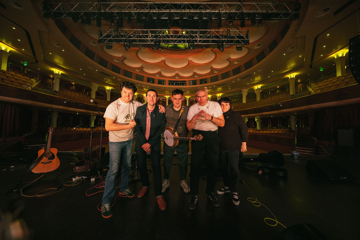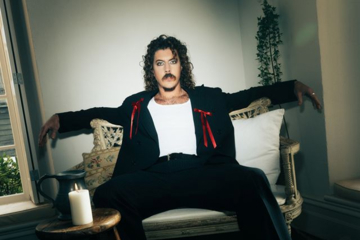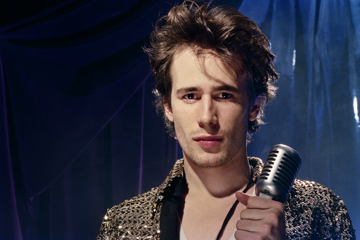Heading Into Deep Water Was A "Real Shock To The System"
"...by pulling the thread, she exposes some much larger issues about the policing that went on in the late 1980s and early 1990s."

Yael Stone
"It's about wading into the deep water of the past so we can understand what's going on now, and in the future."
You have to give Australian actor Yael Stone her due respect. Not only does she provide a neat precis of what the upcoming SBS multimedia event Deep Water is about, she deftly manages to slip the very title of it in there as well. Not that marketing is on the mind of the acclaimed Orange Is The New Black star; her work on stage and screen, and the way she conducts herself away from the audience or the camera, gives every indication that straightforward sincerity is her style.
Primarily based in the US with husband and fellow actor Dan Spielman, Stone returned to Australia this year to take a lead role in the four-part crime drama Deep Water, which is only one section of an overall multimedia 'experience' that also includes a 90-minute documentary and a sizeable online component, all working in conjunction to reveal the harrowing truth behind a spate of hate crimes, including murder, against gay men throughout the 1980s and '90s.
The documentary Deep Water - The Real Story will feature police investigators, crime victims and relatives of the men murdered as it presents the facts and tries to shed light on aspects of the case that remain hidden, while the interactive hub Deep Water - Online Investigations provides a wealth of additional material related to the crimes, including a podcast series and an exploration into 30 cold cases from the era.
Don't miss a beat with our FREE daily newsletter
For many viewers, however, the likely entry point to this story will be the miniseries, premiering Wednesday 5 Oct on SBS. It has a strong supporting cast that includes William McInnes, Wentworth's Danielle Cormack, Craig McLachlan and Stone's husband Spielman, with Stone and Noah Taylor taking the lead roles as police detectives Tori Lustigman and Nick Manning, whose investigation into a brutal murder in Bondi takes an even darker turn when connections to a string of unexplained deaths and disappearances from decades earlier start to appear.
"Basically we have a present-day homicide, and Tori starts to see links to an even greater problem," says Stone, speaking on the second-last day of Deep Water's 32-day shoot. "She starts pulling the thread, and the thread leads all the way back into some cold cases labelled as suicide or misadventure. And by pulling the thread, she exposes some much larger issues about the policing that went on in the late 1980s and early 1990s in New South Wales."
While the miniseries is fictionalised, it uses actual events as its point of origin, something Stone calls a "real shock to the system".
"She doesn't accept the status quo; she doesn't accept the stories she's been told."
"It's something most Sydneysiders may not know about but probably should know about," she says. "And the quality of the victimhood is something we have to ask about. When the victimhood is couched in a community that was viewed as 'lesser than' at the time, it's not valued in the same way as what you might call a mainstream victim. What we're looking at in this story is a comparison between the treatment of the people who perpetrate the crimes, who were given a second chance when the authorities looked the other way, and the victims who were interrogated as if they had committed crimes themselves."
As Lustigman and Manning delve deeper into the case, they find that some of the initial suspects hold little-to-no guilt for what they consider immature indiscretions, others are haunted by their involvement in what Stone calls "a terrifying picture of pack-mentality violence".
Even more disquieting for Stone's second-generation cop, though, is the seeming complicity shown by previous generations of police officers in keeping these cases cold. "There are two major conflicts driving Tori here, and they're personal and professional," says Stone. "Tori wanted to do things the right way, and she finds it very confronting when she learns about the old-school way. She doesn't accept the status quo; she doesn't accept the stories she's been told. And then there's the battle of looking within the force you work with - asking greater questions about that is deeply uncomfortable if you want to keep your job."
Whether the culture within the actual police force has changed in that regard is something Stone says she feels "certainly unqualified" to comment upon, but she is quick to state that her interactions with detective and uniformed officers in researching her Deep Water role gave her plenty of insight into day-to-day police work.
"And I have a great deal of respect for people who do that," she says. "You're the end of the line, the last person who is called - it's a very intimidating position to be in, and I admire the people who do it well."
It's clear, though, that Stone's sympathies lie with the victims of these horrible crimes, these people disregarded or failed by a system designed to provide them with justice. "I had no idea that this had gone on," she says of the crimes depicted in Deep Water. "So I think it's important that this story comes to light."







